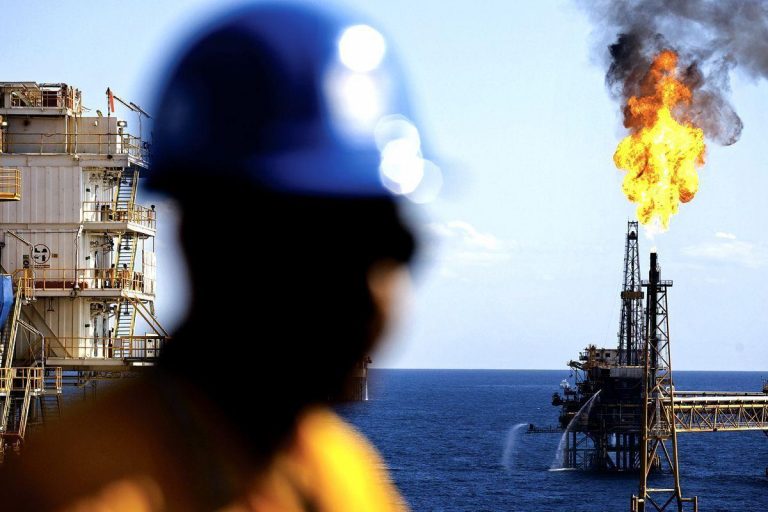Oil climbed above $113 a barrel on Friday as concern over any possible supply disruption due to mounting tensions between Iran and the West countered worries about Europe’s economy.
Crude was set to rise more than 5 percent in the first week of 2012 after Iran threatened to shut the Strait of Hormuz, the world’s most important oil route, in retaliation against tighter sanctions from the United States and a possible ban on its crude exports to Europe.
Brent crude rose 57 cents to $113.31 a barrel by 2.51pm UAE time, after declining by 96 cents on Thursday. US crude was up 38 cents to $102.19.
“The supply risk regarding Iran is still boiling. On top of this, there is also supply risk from Nigeria,” said Carsten Fritsch, analyst at Commerzbank.
“It is clear yesterday’s drop was a short-term one only and unlikely to be continued.”
Still, investors are treading cautiously as euro zone debt problems may worsen and drag down major economies, slowing oil demand. An unexpected 2.2 million-barrel rise in US crude stockpiles also weighed on sentiment.
“Oil could see-saw as the US and Iran play brinkmanship,” said Tony Nunan, a risk manager at Mitsubishi Corp, adding that the global oil demand outlook was murky as the euro zone crisis dragged on.
Iran faced the prospect of cutbacks in its oil sales to China and Japan as new measures to block Tehran’s crude exports over its nuclear programme appeared to be hurting its economy.
In Nigeria, a force majeure on Bonny Light crude oil exports on Thursday underscored the fragility of supplies from Africa’s top exporter, where trade unions are threatening to call a national strike starting on Monday.
Thursday’s fall in prices illustrates there is strong resistance for Brent at $115 a barrel, said Olivier Jakob of Petromatrix. To the downside, key support lies at the 200-day moving average at $112.74, which held on Thursday.
Investors are worried the euro zone debt crisis could worsen and weigh on growth in the United States and China. The euro was under pressure on Friday on signs that fallout from the euro zone’s debt crisis is hitting its banks.
Later on Friday, the United States government issues an employment report that should cement views that economic growth accelerated in the fourth quarter.
Nonfarm payrolls are expected to have risen 150,000 last month, according to a Reuters survey, after rising 120,000 in November.








